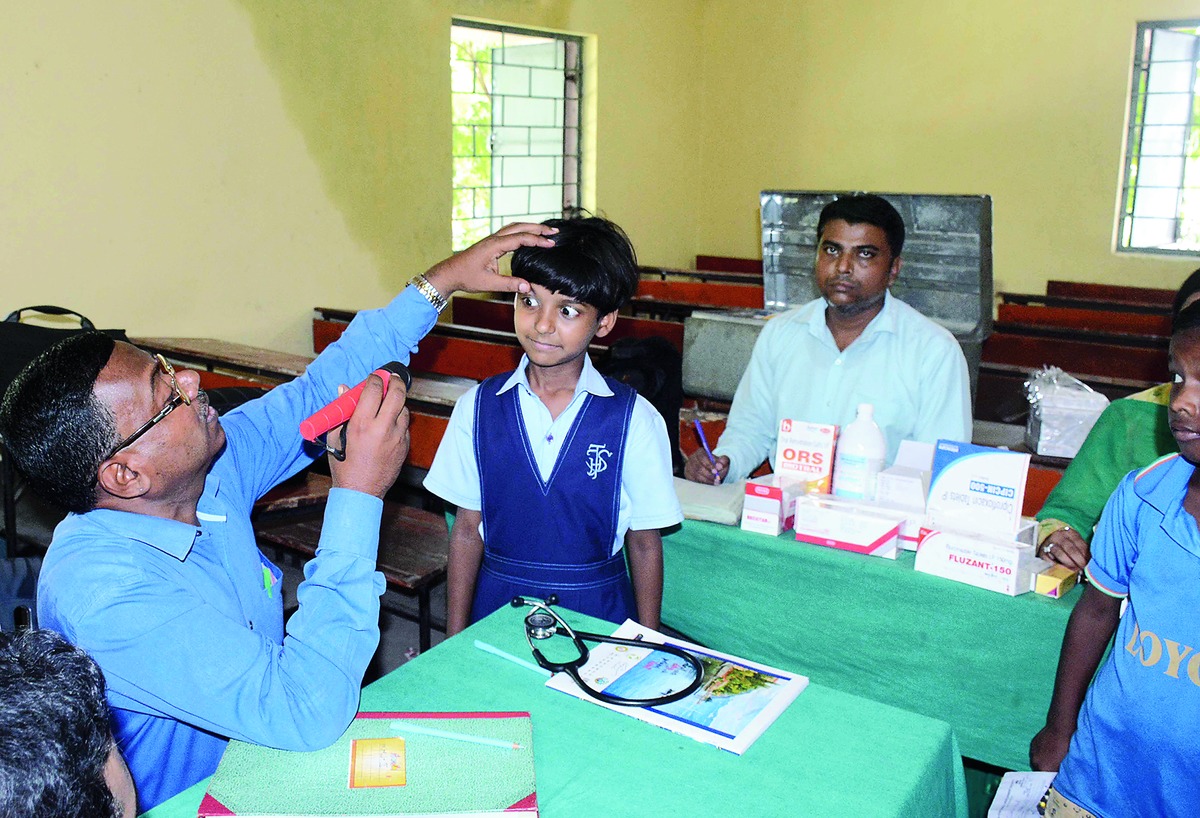
Jamshedpur: A mobile health unit was deployed on Tuesday at two places in Dhatkidih, a crowded locality rocked by jaundice, to help people especially from weaker sections of society with free check-ups near them and make people aware of precautions against the infection.
East Singhbhum health department teamed up with Tata Steel Rural Development Society (TSRDS) for the mobile health unit in Dhatkidih where some 350 jaundice cases are estimated since July last week. Jusco last week surveyed unsafe illegal water connections from the mainlines, which may be the main reason behind contaminated water causing the disease.
The six-member mobile health unit has two general physicians Dr Cecil Kandulna and Dr Rupayan Kapri and has pharmacist Randhir Kumar, auxiliary nurse midwife (ANM) Poonam Lakra, lab technician Mahendra Ravidas and coordinator Chandra Bhushan.
"It is part of our efforts for early jaundice detection. The mobile health unit provided by TSRDS will move in different alleys of Dhatkidih and check patients with jaundice-like symptoms free of cost, and refer them to either Sadar Hospital (in Khasmahal) or MGM Hospital (in Sakchi) for better treatment," said East Singhbhum district surveillance officer Dr Sahir Pall.
On Tuesday, the facility went to two places in Dhatkidih, near Rajkiya Thakker Bapa Madhya Vidyalaya and B Block.
For poorer residents, this initiative was needed. Kanhaiyan Kumar, a contract worker from Harijan Basti in Dhatkidih, said he took his son Subham who had stomach pain, to the mobile health unit. "The mobile health unit was near our locality. It was a great help. The doctors checked him, gave medicines and told us of the precautions to take against jaundice," he said.
Dr Pall agreed spreading awareness on precautions was their priority. "It is important to make people aware of basic hygienic practices such as washing hands, not eating food left out in the open, avoiding roadside snacks and drinking boiled water during this period. The mobile unit staff have been asked to spread awareness while checking suspected patients," said Dr Pall.
The health department had last week sent samples of blood and tap water to National Institute of Virology (NIV) in Pune and National Institute of Cholera and Enteric Diseases (NICED) in Calcutta, respectively, for identification of the viral strain responsible for the jaundice outbreak in Dhatkidih. The reports are expected this week.











